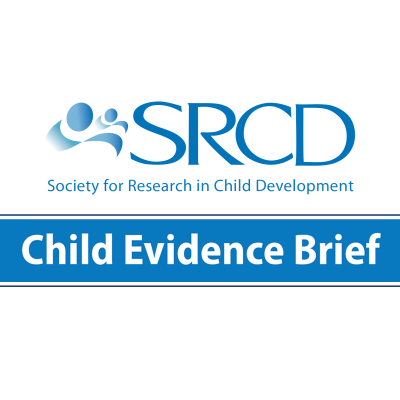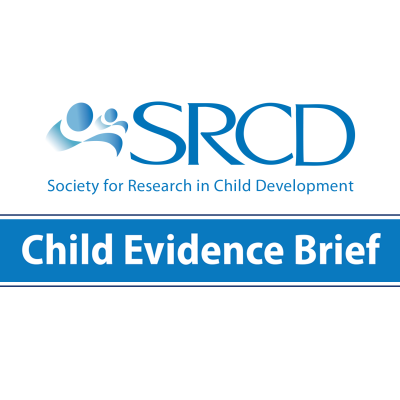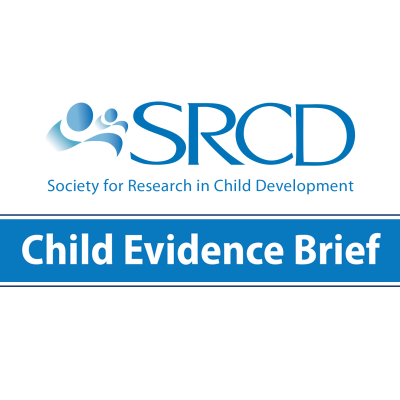Supporting Parents: Using Research To Inform Policy and Best Practice
Social Policy Report Brief, Volume 30, Issue 5
Why Does This Matter?
Parenting is one of the most emotionally powerful, demanding, and consequential tasks of adulthood. Previously, the task of parenting was shared with extended family and community members. Today, with less extensive networks of experience and support, parents are frequently not as well prepared. Research has identified the elements of competent parenting as well as the conditions, programs, and policies that foster it. Although parents in the United States could benefit from parental education and support, there is surprisingly little of either, especially compared to policies and programs that support parents in other high-income countries.
Parenting matters for children’s development. With adequate support, parents can rise to the challenges of raising children in today’s complicated world. In this context, it is shocking how few policies in the United States support parents.
Background
Evidence suggests that competent parenting has beneficial effects on children, and that when parenting is at risk, children are at risk, too.
- The percentage of children living in first-marriage, two-parent families has declined, while the percentage of children being raised in single-parent families, remarried two-parent families, and families with unmarried parents who live together has increased. Two-parent families tend to have greater family income, parental education, and social supports for parents. How-ever, with competent parenting and adequate resources, there are few differences between growing up with first-married biological parents and in alternative family structures.
- In 2015, 14.5 million children in the United States—almost a fifth of all children—were being raised in families below the federal poverty threshold. Research says poverty affects parenting and children’s outcomes, especially for the youngest children.
- With the exception of programs that target at-risk groups such as teens or incarcerated parents, relatively few sustained U.S. government-sponsored programs screen, identify, and intervene with groups of parents at risk.
- The United States remains the only high-income nation in the western world without a government-mandated parental leave policy for the birth of a child.
What the Research Says
Sixty years of research has identified both characteristics of competent parenting and factors that compromise such parenting.
Competent parenting:
- Is protective, anticipating and avoiding children’s stress and helping children when they are distressed;
- Integrates high levels of nurturance with moderate to high amounts of control;
- Draws on an understanding of what children can and cannot do at different ages;
- Involves mindfulness, in which parents are aware of their own emotions as well as their children’s, pausing to reflect before responding;
- Includes involvement and coparenting by both parents, including those who do not live with their children, and
- Uses culturally specific ways to express the key parenting constructs of warmth and control.
Competent parenting can be compromised by factors within and beyond the family:
- Factors within the family include parents’ psychological distress (e.g., depression, anxiety, and stress, which frequently co-occur) and distress in couples’ relationships, especially severe conflict between parents.
- Factors beyond the family include unmet material needs, nonstandard and erratic work hours and limited job flexibility, and the absence of paid family and sick leave.
Implications for Policy and Practice
Information about evidence-based parenting programs should be disseminated so that they can be more widely implemented. Research has identified programs that foster competent parenting:
- Different programs are designed to be delivered in homes, early care and education settings, medical settings, and high schools and colleges.
- Evidence-based programs vary from proactive and preventive to those that intervene in the face of moderate to severe parenting difficulties. Practitioners need information on how to identify parents who would benefit from programs at different levels of support.
- Because parenting challenges can occur with psychological and relationship distress, there are important advantages to approaches that address these issues while working to enhance parenting knowledge and skills.
Parenting issues can be exacerbated by the economic challenges families face and by difficulties finding high- quality child care. Fostering competent parenting also means supporting policy approaches that:
- Expand access to paid family and sick leave;
- Provide incentives for more predictable work hours for parents;
- Increase child tax credits and tax credits for low-income working families;
- Provide resources to help parents make informed choices about child care, and
- Foster a well-prepared and well-paid early care and education workforce as well as high-quality out-of-school programs.
This brief summarizes a longer Social Policy Report, "Supporting Parents: How Six Decades of Parenting Research Can Inform Policy and Best Practice," by Douglas M. Teti, Professor of Human Development and Family Studies, Psychology, and Pediatrics, The Pennsylvania State University; Pamela M. Cole, Liberal Arts Professor of Psychology & Human Development & Family Studies, The Pennsylvania State University; Natasha Cabrera, Professor of Human Development and Quantitative Methodology, The University of Maryland; Sherryl H. Goodman, Samuel Candler Dobbs Professor of Psychology, Emory University; and Vonnie C. McLoyd, Ewart A. C. Thomas Collegiate Professor of Psychology, University of Michigan. This report is an outcome of the 2014 Society for Research in Child Development themed meeting, New Conceptualizations in the Study of Parenting-at-Risk, in San Diego, CA.


